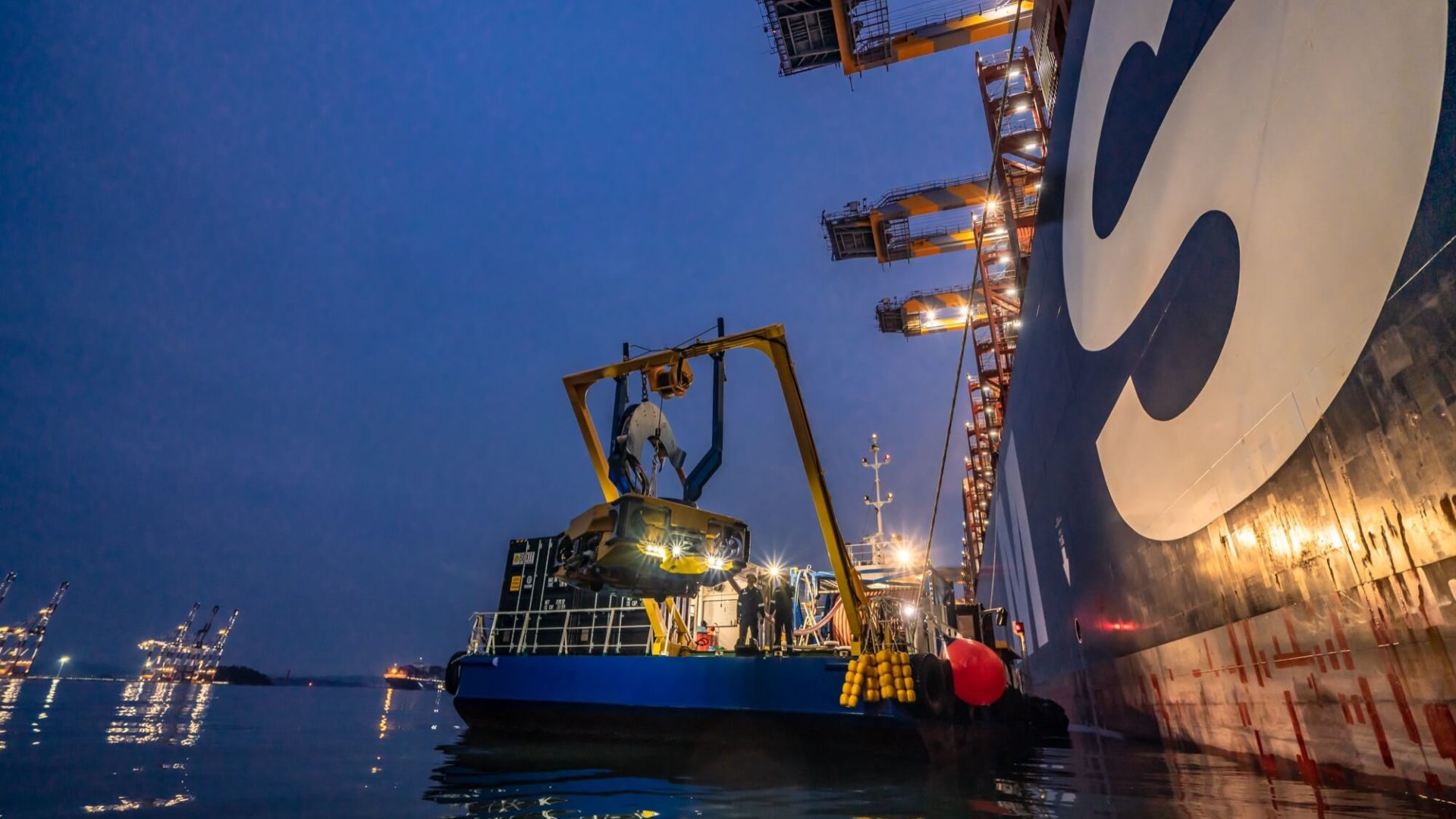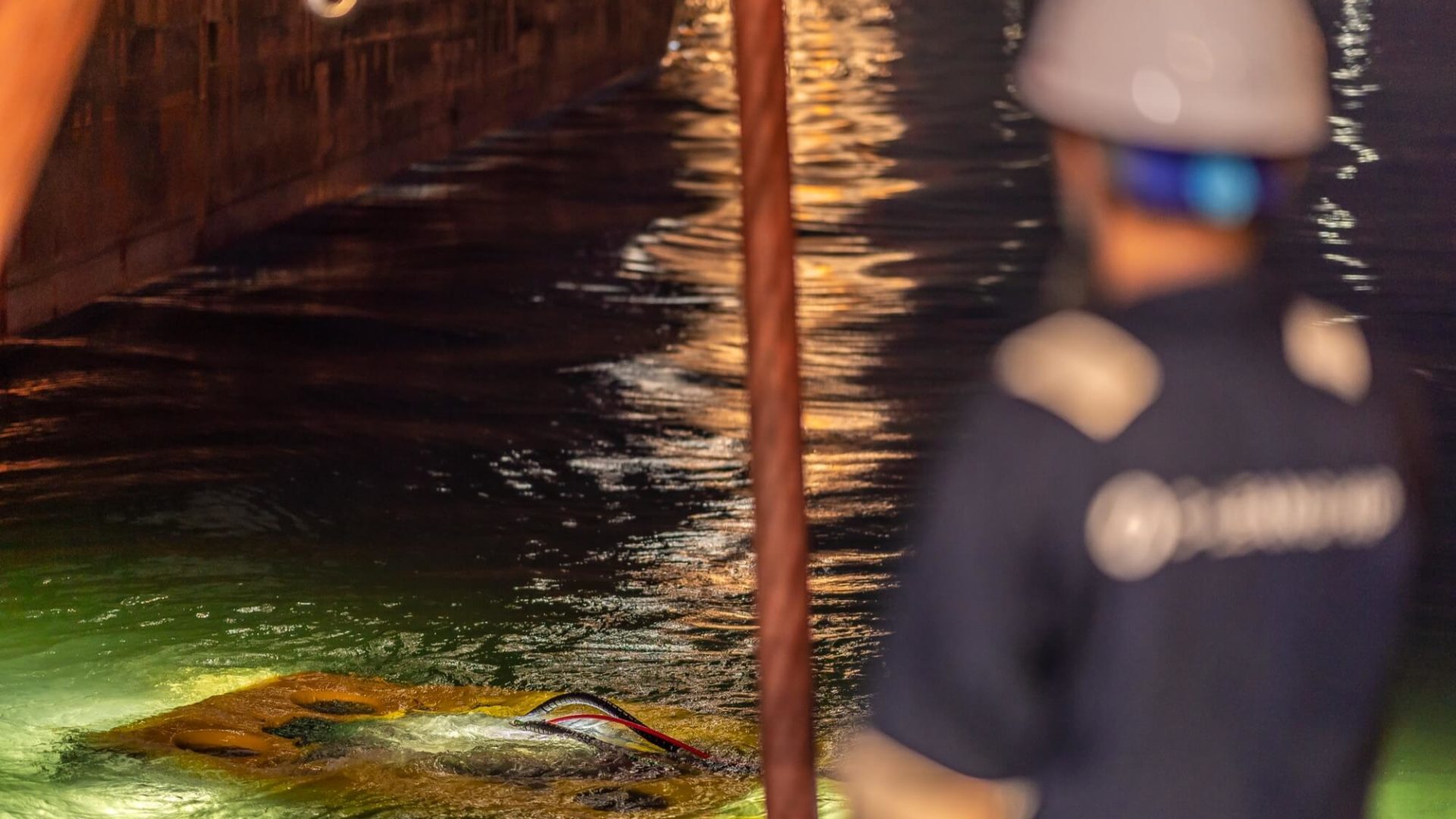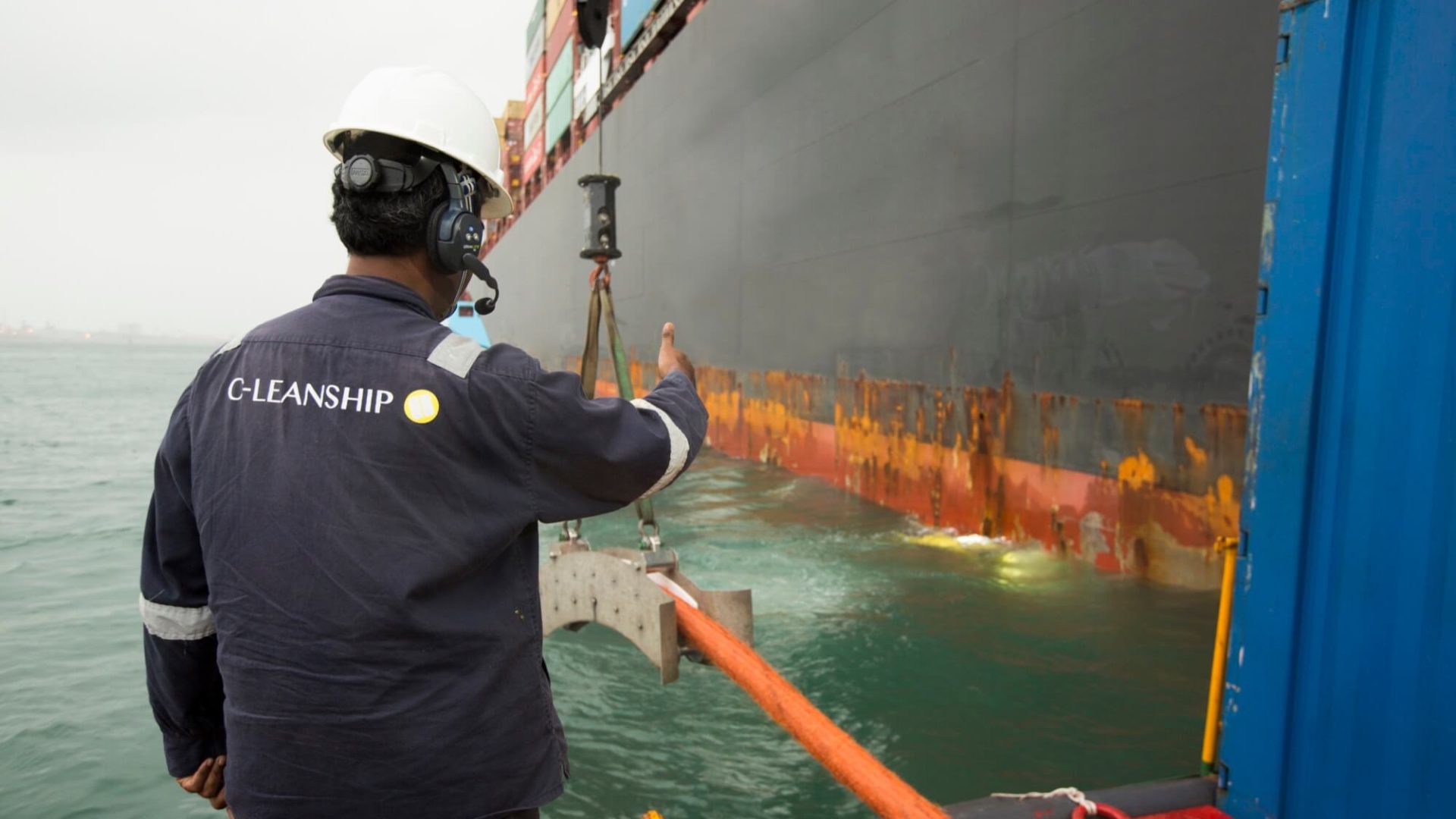The complexity
of biofouling management
made easy
Biofouling management is complex, but the solution doesn’t have to be. It all starts with a clean hull.

Why do you need a biofouling management plan?
Biofouling is not just microorganisms accumulating on your vessel’s hull and propeller. It’s increased CO2 emissions and fuel costs, a threat to marine life, and a growing range of regulations to comply with.
The negative impact of biological pollution and the spread of invasive aquatic species means that important regulations and requirements are getting stricter by the day. A biofouling management plan is a must.
By proactively working with biofouling management, you will also support UN’s Sustainable Development Goals 13 & 14 – Climate Change & Life Below Water – advocating and pushing towards a sustainable future for the oceans, battling climate change, and combatting marine bio-invasions.
Comply with important environmental regulations
To comply with the important regulations, a biofouling management plan including all the necessary actions, and the proper documentation, is a must.
Take active part in the green transition
Regular inspections and cleanings when needed will reduce your CO2 emission. As an added benefit to the positive environmental impact this will also improve your competitive advantage with good CII ratings and EEXI certifications.
Optimize your vessel performance
With proper biofouling management plans in place for your vessels, you will reduce your fuel and operating costs.Based on more than 5000 vessel inspections, we know that our services can optimize vessel performance by 5-10%.
The Guide
Biofouling management can be complex, but the solution doesn’t have to be. In this guide, you will find an easy introduction to biofouling management and situations in which you should pay extra attention to the task.

Why work with us?
Since 2011, we have provided subsea biofouling management services to proactive customers who wish to optimize their vessel performance, reduce CO2 emissions, and stay one step ahead of local regulations and laws.
Our customers return to us because of our state-of-the-art technology and complete service offering. But they also return to us because we make it easy to navigate a complex world of fleet efficiency measures and regulations. Thanks to our experienced team, lean processes, and strong capabilities, we make biofouling management hassle-free.

Frequently asked questions
FAQ
What is biofouling management?
Biofouling management is minimizing the biofouling on a vessel’s hull and propeller.
Why is biofouling management important?
Biofouling management is important for improved fuel efficiency and improved operating costs, reduced CO2 emissions and protection of marine life, and to comply with the growing number of important laws and regulations on biofouling.
How much can I save on fuel with a clean hull?
A clean hull and propeller can improve fuel efficiency by up to 5-10%.
What happens to the debris after a cleaning?
While cleaning, our collection system collects the cleaned biofouling and send it topside to our workboat, where we filter and collect the biofouling. We then dispose of the biofouling in a sustainable manner using dedicated onshore disposal facilities.
When is is important to consider the many aspects of biofouling management?
- When an anti-fouling solution must be selected and purchased for a vessel(s) in the organisation
- When the vessel’s operational profile changes
- When the vessel has been idling
- In cases of the inclusion of specially regulated waters or ports on sailing and freight routes
- In connection with underwater inspection of the vessel’s hull and niche areas
- When underwater cleaning of the vessel’s hull must be selected and purchased
- When the vessel is dry-docked for inspection, repair, and maintenance
How do I get started with a biofouling management plan?
You can download our whitepaper on biofouling management here (link) and we are always available to talk about your needs and how we can help. Contact us here.